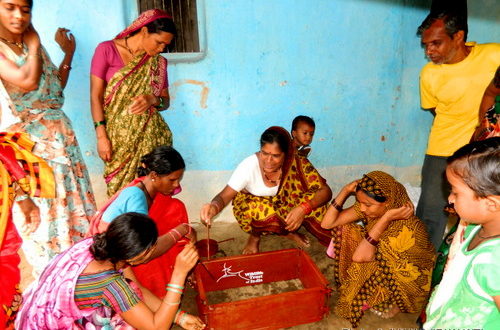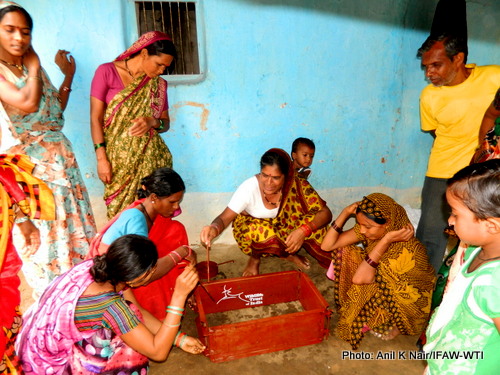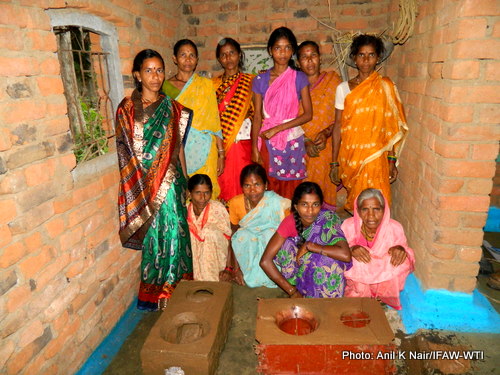Training on Construction of ICSs in Nagzira Nawegaon
Gondia, September 20, 2015: Wildlife Trust of India (WTI) under its Central India Tiger Habitat Securement Project is providing Improved Cook Stoves (ICSs) to villages falling within the Nagzira Nawegaon corridor to reduce their dependence on forests for consumption of fire wood.
Under the initiative, each household in selected villages is being provided with ICSs which reduces fire wood consumption by almost 40%. It also helps in keeping the smoke out of the house and bringing down the health risk to the family members. A study by WHO estimated that around five lakh children and women die in India due to smoke related diseases.
To sustain the use of ICSs in these villages, WTI is providing moulds and training to women on construction of cook stoves. Training on construction of cook stoves and mould handover was held in Mundipar village of Deori tehsil, Kohdipar and Pandharwani villages of Sadak Arjuni tehsil on September 20.
The training was given by Usha Pisde and Chayabai Chanab of Sondlagondi village who are also members of Nagzira SHG. These women were trained previously by WTI on construction of the cook stoves and are now selling them in the market. Forty eight women participated in the training programme that was held under the guidance of IFAW-WTI team.
WTI along with its partners International Fund for Animal Welfare (IFAW), the Ecosystem Alliance, Japan Tiger and Elephant Fund (JTEF) has been working with the communities and State Forest Department for the conservation of the corridor between Nagzira and Nawegaon Tiger Reserve in the state. WTI with its partners initiated ‘Working with Communities to Conserve Wildlife’ programme under the Central India Tiger Conservation Project in Gondia district. Presently, the project is covering 13 villages out of 54 priority villages of three tehsils.
Under the initiative, the first activity undertaken was providing Improved Cook Stoves (ICS) for each household, followed by promoting ‘Artificial Insemination’ for breed improvement of the livestock. Sustainable harvesting of non-timber forest products (NTFPs) and awareness programmes are also being carried out at regular intervals.











